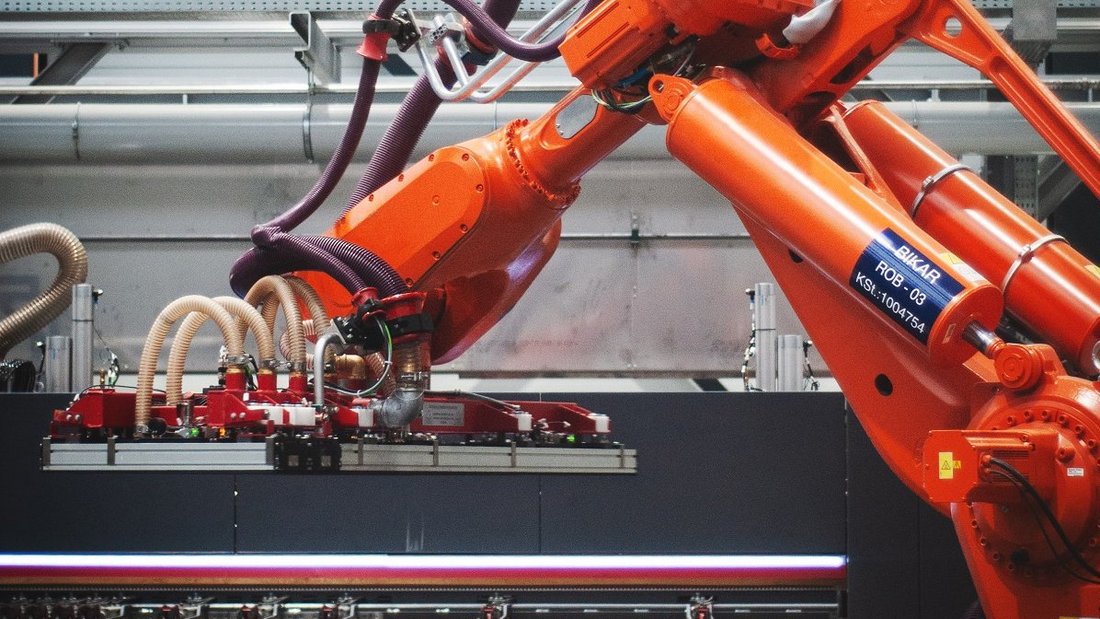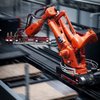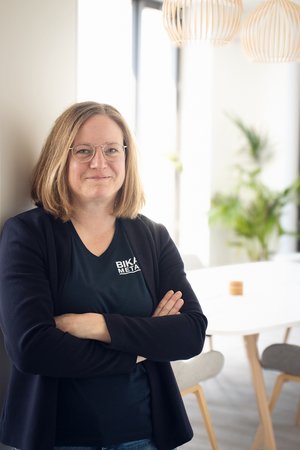From the storage of the aluminum plates to the packaging of the custom-sized blanks, all steps in the BIKAR ZONE are fully automated. For BIKAR customers, this means short delivery times for aluminium semi-finished products of the highest quality and precision. From the size of a postage stamp to that of a door, from batch size one to series production, everything is possible here.
"In the BIKAR ZONE, advanced robotics, automatic guided vehicles, pioneering sensor technology and self-developed software solutions come together to form a unit that excels in precision and efficiency," summarizes Dr Jan Wolf, Chief Information Officer (CIO) at BIKAR, highlighting the advantages of the high-tech cutting centre.
Continuous process optimization ensures steadily increasing production volumes. He adds, "A central feature of the BIKAR ZONE is the extensive development of our software solutions. The ERP and MES systems, customized to meet our specific requirements and developed by our team of over 50 IT specialists, enable seamless integration and coordination of all production processes. Thanks to intelligent algorithms and real-time data processing, we can flexibly respond to customer demands while continuously pushing the boundaries of what's possible.”
With its pioneering production facility, BIKAR is responding to the steadily growing demand for non-ferrous metals, particularly in the field of aluminium semi-finished products. In 2023, the non-ferrous metal industry accounted for approximately 46.8 percent of the total revenue of the metal industry in Germany. A significantly increasing demand is predicted for the future. The reasons for this trend include the numerous positive properties that make aluminium a suitable material for many industries. In aerospace, automotive and aircraft manufacturing, packaging industry, and many other sectors, aluminium has become an essential component.
Sustainable production processes for cutting aluminium
Digitisation and efficient processes also make the BIKAR ZONE a pioneering project in sustainability within the aluminium industry. Precise measurement technology and digital production planning significantly reduce the amount of waste material generated during production. The automation of the cutting process through robots enables more complex cutting plans that would be difficult to implement manually. As a result, BIKAR has been able to reduce annual material consumption by 140 tons, equivalent to saving 1,400 tons of CO2-equivalent emissions. Specially developed systems for suction and compression of chips generated during the cutting process enable alloy-specific separation. This significantly enhances recyclability and minimizes material extracted from the cycle.
In downstream parts of the value chain, the affiliated recycling company BIKAR RECYCLING ensures that customers can sell back their production scrap. The material is separated by alloys and reintroduced in large quantities into the material cycle, thereby reducing the demand for energy-intensive primary aluminium throughout the value chain. BIKAR LOGISTICS, the company's in-house logistics division, collects scrap and chips from customers during return trips, optimizes transport routes, and maximizes logistical synergies.
Another facility modeled after the BIKAR ZONE is about to begin construction
To optimally meet the increasing demand for aluminium semi-finished products and continue the company's growth of recent years, BIKAR is constructing another fully automated cutting centre on a 20,000 m² site at its location in the State of Thuringia, Germany. The focus is on meeting high customer demands for delivery reliability, quality, and traceability, particularly in the aerospace industry. This focus recently enabled BIKAR to secure the largest order in the company's history from one of the leading companies in the manufacture of aluminium aircraft components.









